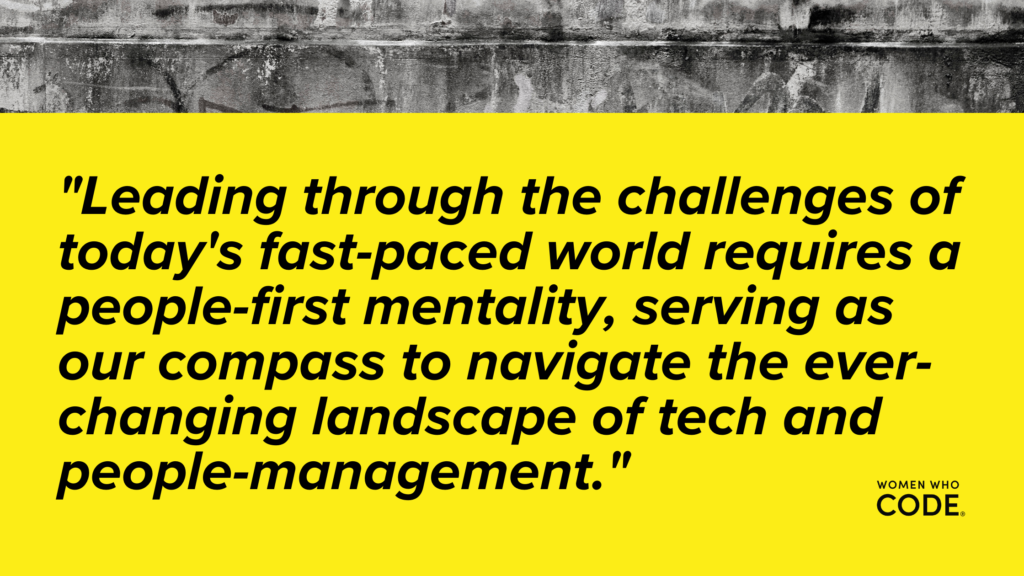Empowering Your Team For Success
Written by Natalia Daies

Empowering your team is more than a checklist of delegated tasks and performance metrics. It’s creating an environment where individuals can make significant contributions while being affirmed in their professional journey and personhood. Empowering your team means supporting them in trusting themselves – their creativity, instincts, and individual and collective voice.
As a people leader, I believe it’s a privilege to be trusted with the personal and professional development of others – to have my team members share their dreams and visions for themselves and allow me to journey with them in a direction that brings them closer to those outcomes and success within the organization. Witnessing the growth and fulfillment of my team members as they achieve their goals is both gratifying and humbling, reinforcing my dedication to fostering a culture of support and continuous learning.
Leading through the challenges of today’s fast-paced world requires a people-first mentality, serving as our compass to navigate the ever-changing landscape of tech and people-management. As people leaders, we play a crucial role in shaping a company and team culture that thrives on empowerment. Here are several key actions I believe can help us achieve this goal:
Build trust and foster a supportive environment – All relationships need trust, and the embedded power dynamics within a team require it. Showing confidence in team members encourages them to believe in their unique capabilities. Creating a safe space for diverse perspectives cultivates creativity and innovation, ultimately leading to better problem-solving, decision-making, and workflows. Team members should be able to share their ideas and know they will be heard and taken seriously. People commit more intentionally to their roles, teams, and projects when they feel sincerely valued and see their input acknowledged and incorporated.
Recognize expertise and encourage risk-taking – It’s crucial to determine each team member’s strengths and opportunities and assign projects that align with their skills but challenge them to continue expanding. Everyone shouldn’t be doing everything – empowering your team means clarifying roles and responsibilities and setting clear boundaries to ensure each team member has the opportunity to contribute in meaningful ways towards strategic goals.
As people leaders, balancing the organization’s needs with managing team members’ expectations can sometimes be challenging. This shouldn’t stop you from creating spaces where team members can share ideas and concerns and be allowed to journey into unexplored areas. The more we reaffirm an individual’s unique gifts and talents through team structure, project assignments, and opportunities to lead, the more we will see the team understanding the significance of how everyone contributes to the wholeness and success of the team and organization.

Actively engage conflict and embrace missteps as learning opportunities – Demonstrate to your team that it’s okay to respectfully disagree and model what it can look like to remain in the tension of disagreement while continuing to show up for the team. Team members should feel confident that mistakes will be met with compassion. This compassion can motivate team members to continue to self-affirm and correct and work towards better conflict resolution in the future. Embracing missteps as learning opportunities will also create a work culture in which team members feel comfortable failing. This is important because failing can mean they’re trying new things and that they trust you to help guide the process.
Be a finisher and celebrate every milestone – Your team should be able to count on you to get them across the finish line. There will never be a more empowered and connected team than one that journeys together from start to retro on a significant deliverable. As a leader, your eyes are always on the outcome, but to motivate and empower your team, it’s essential also to be mindful of all the pivotal moments along the journey. Celebrate as much as you can as often as you can. This will boost morale and help your team to maintain momentum when balancing multiple priorities.
When team members feel empowered, they become more engaged and committed, and, as a result, the organization benefits from a dynamic workforce capable of navigating through the most challenging obstacles as a unit.
As a people leader, you’ll need to be more attuned and attentive than you’ve ever been in your career. You’ll need to model persistence and commitment and remember that no matter what you’ve been taught, it will never be “just work.” Your team members are real people with real dreams, complex identities, and lives outside the workplace. It’s up to you to create an environment where team members are empowered to thrive.